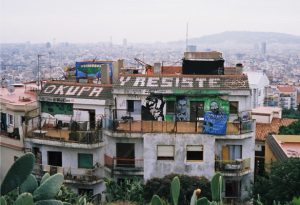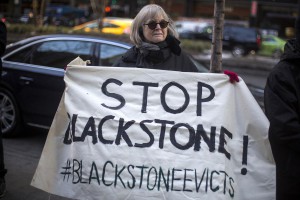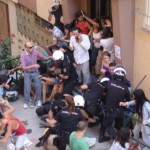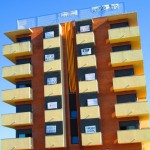 Panic wave. The looming economic crisis has begun to negatively affect the real estate market: rental prices are falling, rents are falling.
Panic wave. The looming economic crisis has begun to negatively affect the real estate market: rental prices are falling, rents are falling.
Breakfast with alarming news: squatting is still going on, the insecurity of everyone (as we are all owners) is at its highest. Radio advertisement of a security company: “Burglary and squatting alarm equipment”. Report in a program of maximum audience to the heroes of the companies kicking out squatters: five bodybuilders already in their forties explain their work; the legality of it seems doubtful. Statements by a politician: “One of these days you go on vacation and when you return, because they consider the house to be empty, they give it to their squatters’ friends – in reference to a well-known ‘leftist’ party”. The emergency campaign for the problem of squatting is continuous, insistent, and crushing. The fear, converted into a wave of panic, reaches a good part of the population. Rumors of home invasions have acquired the rank of “I know the case of a friend of a friend who had his house occupied, and blah, blah, blah”.
But what are we talking about when we say ‘squatting’? Obviously, of entering to live in a property of which one lacks all legitimate rights (understand, sanctioned by the property). [Read More]



